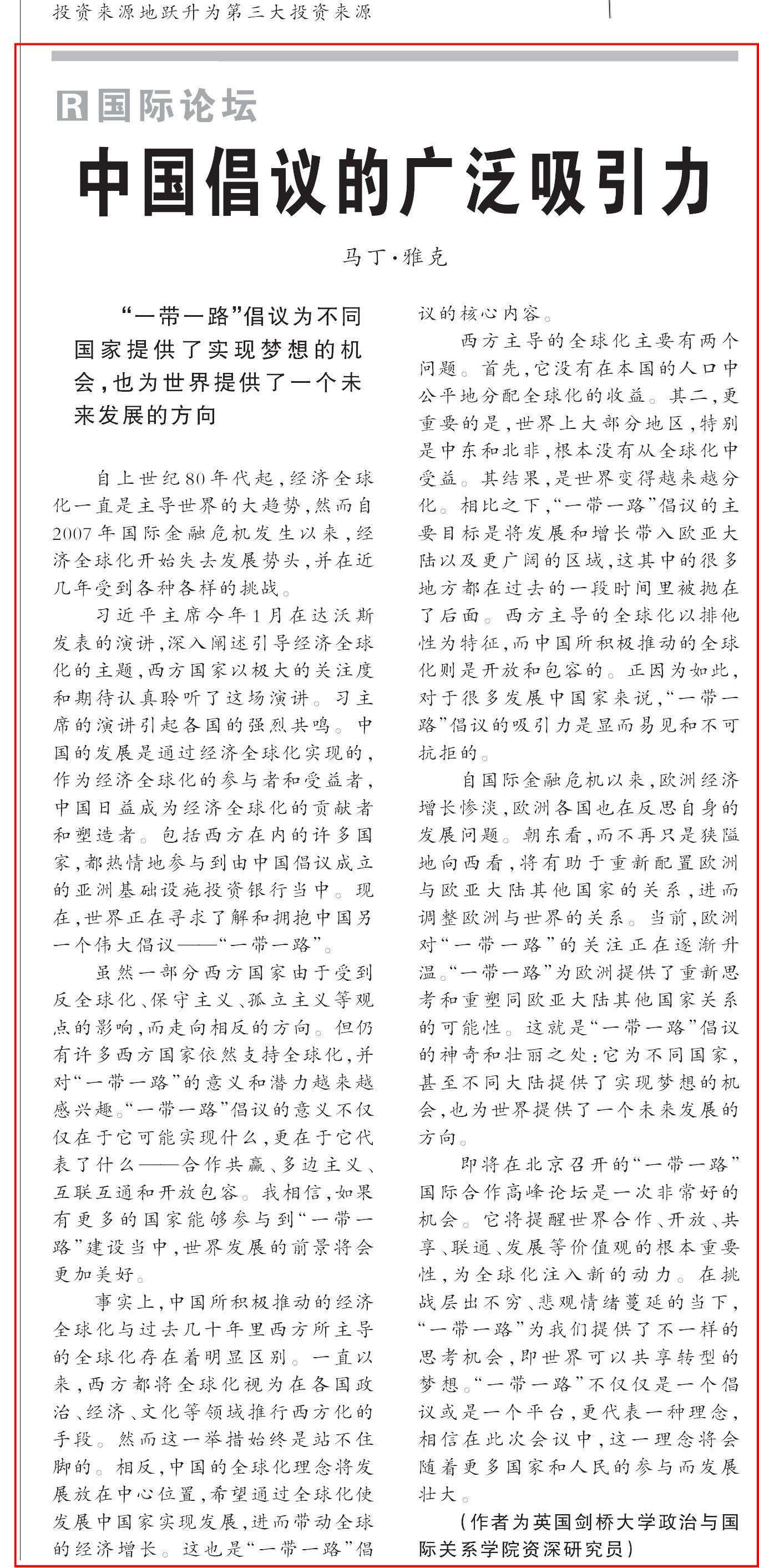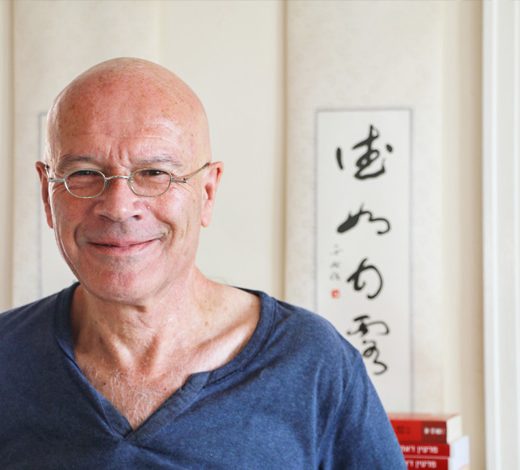Articles
The following is an English translation of a People’s Daily article written by Martin Jacques.
The trend towards globalisation that dominated the world from around 1980 – driven by the neo-liberalism of Ronald Reagan and Margaret Thatcher and Deng Xiaoping’s economic reforms – began to lose momentum with the Western financial crisis in 2007-8 and came to something of a shuddering halt in the West with Brexit in the UK and the election of Donald Trump as US President in 2016.
Original article by Ken Moak in Asia Today, which can be found here.
If the polls are to be believed, Hong Kong’s “pro-democracy” or “pan-democracy” groups, Occupy Central and the Umbrella Movement, could be labeled as “fake” democrats.
Anson Chan was called an “instant democrat,” because she became one only after she was rejected as a candidate for the Special Administrative Region’s (SAR) Chief Executive. Chan was a champion and chief administrator of the undemocratic British colonial government. But once Hong Kong was returned to China, she suddenly acquired a “democratic conscious,” criticizing the mainland as authoritarian and demanding universal suffrage.
An opinion piece by Carmen N. Pedrosa in The Philippine Star. Read it on their website here.
There have always been critics of The Asian Century. As expected these critics are from the Western world that once colonized almost the entire Asian continent. Asians, they think were properly subjugated. Not so fast, boy. We do not know why things happen as they do – in circles. A good example is the Chinese Belt and Road initiative. For myself, I think it will be a comeback for Asians who are great traders and innovators, given the chance.
But some Western critics are satisfied with the reasoning that because the West does not want to happen, it will not happen. That is a blatant presumption of their colonial thinking.
Martin Jacques says that although China is reaching out globally, it does not see itself as a model. “They don’t require other countries to be like them,” he says.
During the long years that Martin Jacques devoted to writing what became the international bestseller When China Rules the World: The End of the Western World and the Birth of a New Global Order (Penguin, 2009 and 2012), he never imagined the book would sell more than 350,000 copies, be translated into 15 languages, and have the tremendous global impact it has had.
A study of China’s inexorable rise as a world power asks vital questions of America’s response.
The central theme of this excellent book by Gideon Rachman, chief foreign affairs commentator for the Financial Times, is what he terms “easternisation”: the remorseless shift in the global centre of gravity from the west to the east. His theme is not new; indeed, the book is something of a latecomer in this argument. But he pursues this fundamental truth with an impressive single-mindedness and explores its ramifications from south-east Asia and Russia to Europe and the Middle East in an insightful manner, often providing little nuggets of revealing and unexpected information. Since the financial crisis, the west’s decline and China’s rise have accelerated, though many could be forgiven for thinking the opposite was the case given the constant refrains about China’s economic “difficulties”. Rachman, rightly, will have none of it. And he demonstrates how, by the year, the world is being redrawn in the most profound ways by this shift in power.
The forthcoming G20 summit comes at an appropriate moment in the evolution of China’s own relationship with the global economy and its governance.
China’s formal entry into the global economy was marked by its admission to the WTO in 2001. For more than a decade after that, with economic growth averaging around 10%, trade expanding to the point where China became the world’s biggest trading nation, and overseas investment growing very rapidly albeit from a very low base, China chose to take a back seat while learning the ropes of its newly acquired status. During this period, China preferred to play a relatively passive role. As a result, it was frequently criticised by the United States for being a free rider: enjoying the benefits of globalisation without contributing to the global public goods that were needed.
中国是目前世界上发展最迅速的国家之一,处在影响未来全球经济及其治理的关键位置,而杭州峰会正处在一个历史性的重要时刻
在过去几年里,中国在国际社会中扮演的角色越来越主动,更多地成长为经济全球化的塑造者。有两个标志性例子可以证明:一是筹建亚洲基础设施投资银行,该银行吸纳了来自欧洲及亚洲的多国成员,将成为亚洲地区基础设施建设投融资最重要的机构;另一个是提出“一带一路”倡议,致力于打造最具雄心的跨国发展战略。此外,海外投资、人民币国际化、中国企业“走出去”等,都说明了中国的全球影响力在多个层面迅速扩展。
Extracts from Martin Jacques’ Observer article have been translated and published in Reference News, the largest circulating newspaper in China.

Following its publication in The Observer, this article has stimulated a great deal of interest and debate in the UK and the US. It received almost 500,000 unique visitor views and trended on Twitter.
In the late 1970s Martin Jacques was one of the first to herald the emerging dominance of neoliberalism in the west. Here he argues that this doctrine is now faltering. But what happens next?
The western financial crisis of 2007-8 was the worst since 1931, yet its immediate repercussions were surprisingly modest. The crisis challenged the foundation stones of the long-dominant neoliberal ideology but it seemed to emerge largely unscathed. The banks were bailed out; hardly any bankers on either side of the Atlantic were prosecuted for their crimes; and the price of their behaviour was duly paid by the taxpayer. Subsequent economic policy, especially in the Anglo-Saxon world, has relied overwhelmingly on monetary policy, especially quantitative easing. It has failed. The western economy has stagnated and is now approaching its lost decade, with no end in sight.
After almost nine years, we are finally beginning to reap the political whirlwind of the financial crisis. But how did neoliberalism manage to survive virtually unscathed for so long? Although it failed the test of the real world, bequeathing the worst economic disaster for seven decades, politically and intellectually it remained the only show in town. Parties of the right, centre and left had all bought into its philosophy, New Labour a classic in point. They knew no other way of thinking or doing: it had become the common sense. It was, as Antonio Gramsci put it, hegemonic. But that hegemony cannot and will not survive the test of the real world.


